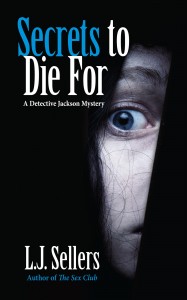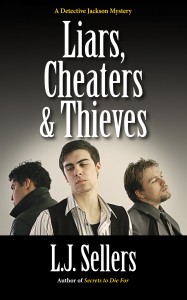The recent news about the IPG-Amazon struggle has people saying all the same things. “Amazon is flexing its muscle and hurting the little guys.” “Big bad Amazon.” Shelf Awareness ran the story with quotes from authors and publishers all complaining about Amazon’s tactics.
My understanding of the dispute is that IPG wanted better distribution terms for its ebooks—I believe it requested no discounting—and Amazon said no. Which the company has the right to do. Amazon already capitulated when the Big 6 publishers colluded to set their own high prices—a collusion that is now the subject of lawsuits and investigations.
So like all other retailers, Amazon wants to control the sale price of its inventory, and since it couldn’t get Independent Publishers Group to agree to its terms, it took IPG’s products off the shelf. (Caveat: There may be more to the issue than I realize, and if you know more, please leave a comment.)
The people hurt most by this are the authors whose ebooks are no longer selling at Amazon. But it’s important to remember that these authors have a choice. They chose to publish their work through a small publisher, which in turn, contracted with IPG for distribution. Or maybe some authors are working directly with IPG. Either way, these authors have chosen to hire middlemen for publication and/or distribution. Middlemen that take a chunk of the profit, and in this case, refuse to meet Amazon’s terms.
But this is the new age of publishing! Authors don’t need publishers, or distributors for that matter. Anyone can upload their ebooks to Amazon though Kindle Direct Publishing and to Barnes & Noble through PubIt. Granted, if you want to sell on Kobo and Sony, you need a distributor. But Kobo and Sony’s market shares are almost insignificant, and at the same time, they are the ebook retailers doing the discounting that, in turn, triggers Amazon to drop its price.
I pulled my books down from Kobo and Sony for that very reason. They caused me to lose far more money at Amazon than I ever made from either. And Amazon has never discounted my books except to match another retailer’s price.
I understand authors wanting to control the price the book is sold for, and thus, maximize royalties, but if your book is not selling on Amazon, you’ll never maximize your profit. From my perspective, it makes far more sense for IPG to pull its books from Kobo and Sony, and thus eliminate the discounting issue, than to give up its authors’ opportunity to sell on Amazon.
What is IPG offering its authors—besides getting their books pulled from the biggest retailer in the marketplace? I realize distributors may be able to get some print books into bookstores, but what can they do for ebook-only authors that those authors can’t do for themselves?
Of course, some—or many—may have signed contracts with small publishers (that in turn signed with IPG) and therefore, they no longer have the right to control their own work. But instead of complaining about Amazon, they should be contacting their publishers about finding a new distributor. Or if they work with IPG directly, maybe they should terminate that agreement and either find a new distributor, or better yet, simply join the indie revolution and upload their books to Amazon, B&N, and Apple themselves.
Another blogger has offered some excellent alternatives for IPG as well. I expect to take some heat for this, so tell me, what do you think?



 Several readers have e-mailed me and said, “I’d really like to read your e-books, but I don’t how… Which inspired me to put together this list:
Several readers have e-mailed me and said, “I’d really like to read your e-books, but I don’t how… Which inspired me to put together this list: